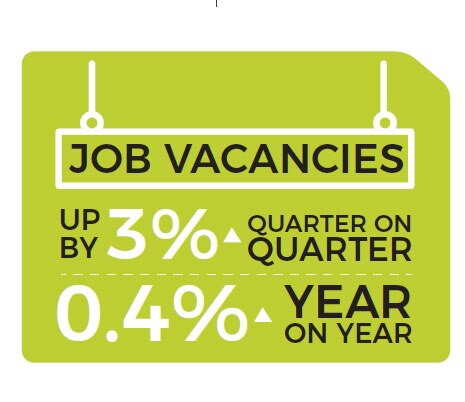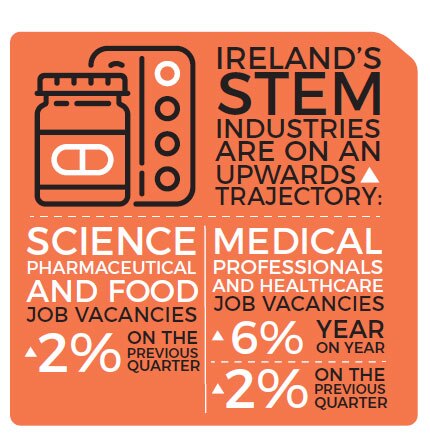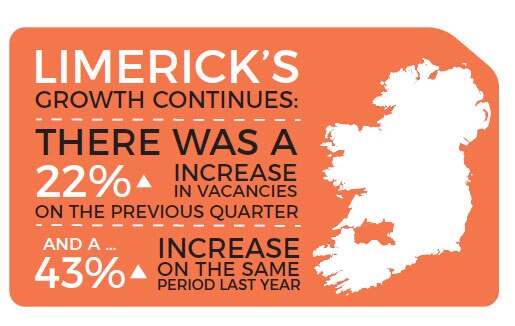The IrishJobs.ie Jobs Index for Q3 2017 shows robustness in the jobs market and the wider economy.
Broadly speaking, Ireland is in a strong position.Continuing an upward trend, we look set to enjoy another year of growth (+4% in 2018), fuelled by high employment, and strong retail sales and personal consumption.
The Jobs Index shows a modest increase in the number of jobs vacancies, up 3% from the previous quarter. Hotels and catering, IT, and production, manufacturing and materials are among the top performers
The success of high skill, high-value STEM industries are a litmus test for an advanced economy, and here, too, Ireland performs well: our science and medical industries have increased their hiring by 15% and 6% respectively year-on-year.
The capital enjoys the lion’s share of job creation and investment, but urban centres like Cork, and in particular Limerick, are proving highly popular as alternative locations for new business growth. Limerick jobs vacancies grew by 22% in Q2 2017 and by 43% year-on-year.
However positive these results are, a number of challenges threaten the continued long-term growth and prosperity of the Irish economy.
While some counties have bucked the trend, rural Ireland in general lags behind. In the Midlands and the South-East, unemployment rates are the highest in the country.
Outside of Ireland’s big three urban centres–Dublin, Cork and Limerick–investment in infrastructure remains a low priority.
The spectre of Brexit, too, looms large, though the plodding pace of UK-EU negotiations may have lulled businesses and government into a false sense of security.
While London and Brussels could still work out a deal that is amenable to Ireland, it is impossible to accurately predict what the outcome will be.
Businesses must be prepared for all of them.
If the UK crashes out of the EU without a deal, Ireland will bear the brunt of the damage. A hard Brexit implies tariffs, taxes, border checks, supply chain disruption and myriad other changes — all of which threaten economic growth in Ireland and, ultimately, job creation.
In other words, many Irish employers are understandably cautious about committing to new recruitment until the macro-landscape becomes a little clearer.
If Ireland can court some of the UK-based multinationals planning to leave the country after Brexit, we could benefit from an influx of new highly skilled jobs in tech and finance.
Of course, this process will take time, and there will be no overnight successes. Furthermore, at this relatively early stage, it remains very unclear how many of these multinationals will actually relocate from London and how many are merely hedging their bets on a softer post-Brexit landing for their respective industries.
Despite these impending external factors, Ireland has plenty to be plenty to be proud of. Unemployment is generally low and job creation is steady, spread out across sectors. To ensure this continues, industry and government must continue to work together to bring investment to rural parts of the country and mitigate as much of the Brexit risk as possible.
Orla Moran, General Manager, IrishJobs.ie



